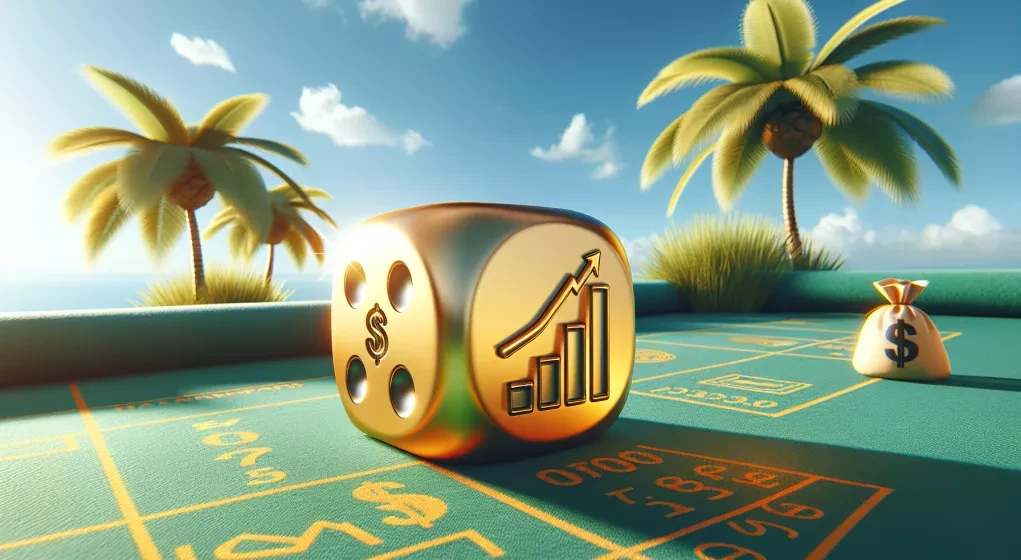Amidst the effervescent glow of The Strat casino hotel, a gambler’s beacon just shy of the Las Vegas Strip’s neon clamor, rises a noteworthy player in the gaming industry’s high-stakes endeavor – Golden Entertainment. In a strategic play as shrewd as any poker-faced bettor at its tables, Golden has deftly maneuvered to escalate its fiscal hand, raising its share repurchase program stakes by a cool $100 million.
The chips fell favorably for Golden as they revealed their third-quarter earnings, a performance that prompted the board of directors to not just applaud but react, enhancing their buyback prowess from a substantial $31.4 million to an astoundingly robust $131.4 million. The mastermind behind the strategy, CEO Blake Sartini, expressed his bullish outlook, “We anticipate that business conditions will improve in the fourth quarter and, with our increased share buyback authorization currently at over $130 million, we expect to continue to use our liquidity to acquire our own shares throughout the year.”
The company’s gambit isn’t just a one-off bluff; Golden, a titan commanding a fleet of gaming taverns across Sin City’s valley, is well-known for upping its ante on buyback excursions – reminiscing to a similar move in July of the same year.
Golden’s buyback endeavors aren’t a mere show of extravagance but a crucial tactic in the corporate finance playbook. This strategy serves a dual purpose: a tax-efficient return of capital to shareholders and a strategic flex of financial acumen, enforcing the astute flexibility that doesn’t chain them to the full commitment of the announced repurchase magnitude.
Their actions speak as loudly as their intentions. In the quarterly reveal, the evidence was crystal clear – Golden repurchased a staggering 815,116 shares at an average price of $31.65, totaling a power play of $25.8 million. Barely had one quarter bled into the next when additional shares, 134,613 to be exact, were snapped up in a $4.2 million October extravaganza. Overall, the 1.94 million shares reclaimed by the company underscored a confident stride, a testament to its conviction in the undervalued stock languishing down 22.92% year-to-date.
The company’s ledger remains robust, backed by a bulwark of owned real estate upon which its gaming empire stands. With a cache of $68.6 million in cash and equivalents and an unburdened $240 million borrowing capacity, it appears Golden’s financial fortress remains impregnable. This stability underpins a future ripe with potential shareholder rewards, even as it faces down $399 million in liabilities that appear to be mere pawns on its financial chessboard, likely to diminish should the tides of interest rates ebb favorably.
Amidst whispers of potential sell-and-lease-back deals cropping up in the sotto voce of casino corridors, Golden refrains from commenting on such speculation. Yet, should the cards fall into such a play, the transmutation of assets to liquid wealth would no doubt boost their reserves, albeit tethering them to a yoke of long-term leases.
In the grand theater of Las Vegas’s gaming industry, Golden Entertainment conducts its fiscal symphony with the precision of a maestro, orchestrating a strategy that has investors and bystanders alike waiting with bated breath for the next reveal of cards from its deck.






